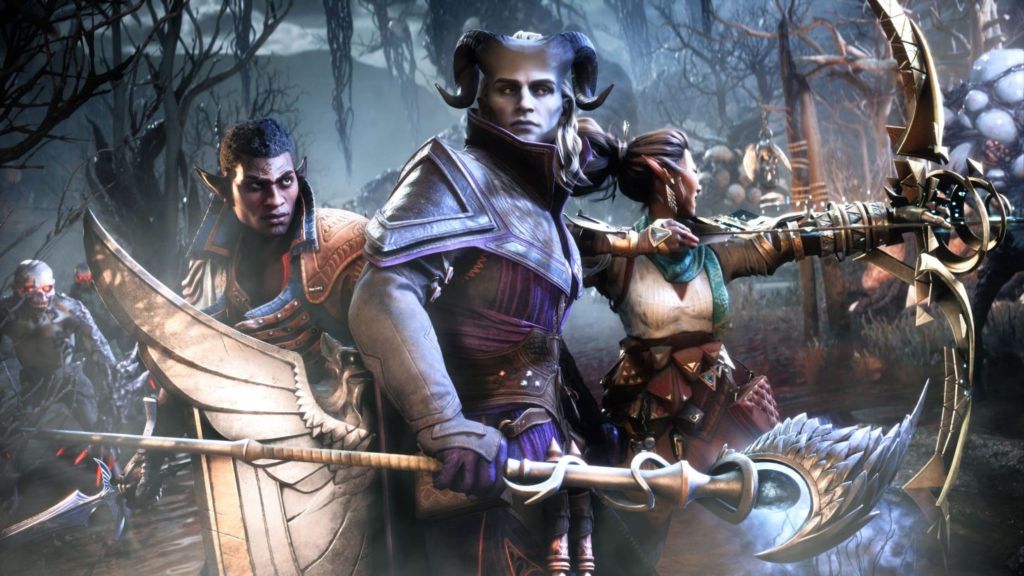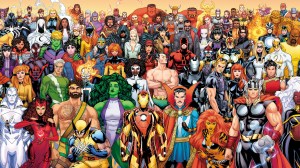EA seems to believe that Dragon Age: The Veilguard failed at least partially because it didn’t have live-service elements. The gaming landscape has changed quite radically over the last decade. Games like Destiny and Fortnite have encouraged developers to look toward making its games everlasting rather than an experience that lasts a finite amount of time. Of course, this allows them to make more money on singular products and can help get new content out there quickly in an age of long development times. However, it has also led to live-service fatigue from gamers, especially as these trends have infected games that don’t need it like Suicide Squad: Kill the Justice League.
Videos by ComicBook.com
Even PlayStation was interested in pursuing live-service games, but after the massive bomb that was Concord, it has pumped the brakes on that idea. While games that may have worked as live-service titles like The Last of Us Online have been scrapped, the Concord failure led to a canceled God of War live-service game… a franchise that really had no reason to ever be in that genre. Some developers were able to see the writing on the wall and pivot, but that caused problems too. Dragon Age: The Veilguard was initially planned as a live-service game, but it pivoted to a traditional single-player RPG after BioWare’s Anthem crashed and burned.
Sadly, this turn wasn’t enough to save Dragon Age: The Veilguard. The game was in development for nearly a decade and unfortunately didn’t perform well. Support for Dragon Age: The Veilguard seems to be ending, just several months after its release and it seems to have dramatically impacted BioWare’s future as numerous staff members who worked on the game including writers and the director are no longer with the RPG studio. Dragon Age: The Veilguard got favorable reviews from critics who praised the gameplay, but some knocked the lack of nuance in the game’s narrative and writing. Of course, BioWare is known for its well-crafted stories, so this did put some fans off.

The Veilguard also got caught up in the larger culture war which led to review bombs and people outright avoiding the game. During a recent investors call, EA CEO Andrew Wilson talked about how Dragon Age: The Veilguard failed to meet financial expectations and why he believed it didn’t land with fans. Ultimately, Wilson chalked it up to players being disinterested in something that is lacking live-service elements such as “shared-world features.”
“We know as a leader in global entertainment, great titles—even when built and delivered with polished execution—can sometimes miss our financial expectations,” said Wilson. “In order to break beyond the core audience, games need to directly connect to the evolving demands of players who increasingly seek shared-world features and deeper engagement alongside high-quality narratives in this beloved category. Dragon Age had a high quality launch and was well-reviewed by critics and those who played; however, it did not resonate with a broad-enough audience in this highly competitive market.”
It certainly sounds like EA is wishing Dragon Age: The Veilguard stuck with its live-service roots instead of abandoning it for a traditional single-player RPG. While we really have no idea how much of a difference it could’ve made for the game, there are other games we can look at to see how it actually hurt them. Suicide Squad: Kill the Justice League had an interesting story, but totally bombed because players weren’t interested in a live-service looter shooter in the DC space. Even though Rocksteady supported it for a full year with regular updates, the game barely had more than a few thousand players by the end of its run.
BioWare is currently gearing up to make Mass Effect 5, but nothing is really known about the game. It’s expected to be a single-player driven RPG, but it’s entirely possible that EA nudges BioWare back to making its games as live-service titles. Whatever the case may be, BioWare needs another hit. It has been a decade since its last truly successful game and it will probably be closer to two decades by the time Mass Effect 5 comes out, so BioWare really needs to stick the landing here commercially and critically.








